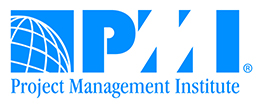Things to know before becoming a PMP – Part One
Note: I wrote this series of blogs because there is a lot of misinformation out there about the PMP exam. (One potential customer, for example, wanted to hire me because “since you are a PMP, you must be good at Microsoft Project.” Now it’s likely true that PMP’s probably use Microsoft Project on a regular basis. But there is no correlation between the two. In fact, PMI does no testing on any software whatsoever.) This series is a mixture of fact (PMI information) and opinion (mine).
Disclaimer – I have been a PMP since 2001 and have been teaching it since 2002. Bearing that in mind as you read this, you will assume that I have a vested interest in putting my own needs over the needs of my readers. And so therefore would always recommend that you get your PMP and would further recommend that you hire someone (me) to train you. But as a long-time consultant, I have learned that I must put the needs of my customers (readers) over my own interests. So with that in mind, I will try to give you as objective an analysis of these questions as I possibly can. Ultimately, getting certified is your decision to make and you should talk to as many people and read as many pieces of information as you can. I am just one data point.
The heart of the matter
Many project managers who are not Project Management Institute (PMI) certified struggle with questions about PMP certification every day. Questions such as, Should I get the PMP? Will it help me in my career? Will it make me a better project manager? Is it really a valuable certification or has it become watered-down? Am I better off getting a university degree? Those are what I would call some of the pre-PMP questions. If someone then decides to get their certification, the questions are different. So, How hard is the exam? How much money will I need to spend to get it in either studying or buying materials? Can I self-study or must I pay an instructor? How much time must I invest in studying? How much experience and education do I need? How do I keep my certification up over the years? Do I have to join PMI? If I opt to go to class, is a virtual class just as good as an in-person class? Should I take a 4-day boot camp and take the PMP on the fifth day? Over the course of the next several posts, I will endeavor to explain and demystify some of these questions. So the first question we must entertain is this:
Should I get the PMP?
Well, like so many things in life, it depends. Ask yourself this – why do I want it? Do I want it because my peers have it? Do I want it because management seems to think I should have it? Do I want it because I believe I’ll be a better project manager because of it?
I’ll start by telling you why I got my PMP. I am independent now, but back in 2001 I was a program manager for a large telecommunications company. I had been running large projects for several years and frankly, while there was always more for me to learn, I didn’t necessarily think I was losing out by not having certification. I’d go to the local PMI chapter meetings regularly (I was on the board as a volunteer at the time), see people who had just become PMP’s and ask them about it. They all said it was a difficult exam but no one could really articulate why they did it other than that their boss wanted them to have it.
Regardless, undaunted, I decided to keep researching the subject and what I found was by and large, several things: One is that when I looked at job postings on the web, more and more of them required the PMP. And I also discovered by talking to PMP’s in companies that a major benefit their studies gave them was that they now had a common language to speak from. So everybody knew what a charter was or a scope statement or a WBS. And that commonality of language among PM’s made it easier for them to not only standardize but also converse within the organization. I also discovered that oftentimes organizations will mandate that all their project managers become PMP’s so that they may stay competitive in the marketplace as an organization. So if all their competitors are training their people to be PMP’s, they feel they need to as well.
I mentioned that there were several things I discovered but I later found there was one that was the most, for want of a better word, controversial. It’s this – some of the pushback you will see (especially in Internet chats) is that PMP’s are not necessarily better PM’s than non-PMP’s. This is absolutely true. If you are a lousy project manager, and you take the exam, you will now be a slightly better lousy project managerwith a certification. If you’re not yet good at what you do, you’re much better off going to class to learn scheduling, scope management, risk management, etc. before you get your PMP. For me, I found that after studying for and taking the PMP I actually was a better project manager. Why? Because it forced me to re-think some tools and techniques I had lost sight of (WBS, change management) but also to consider some areas that I hadn’t even thought were within my purview (quality, procurement).
(Part 2 in a couple of days)


Comments are closed.